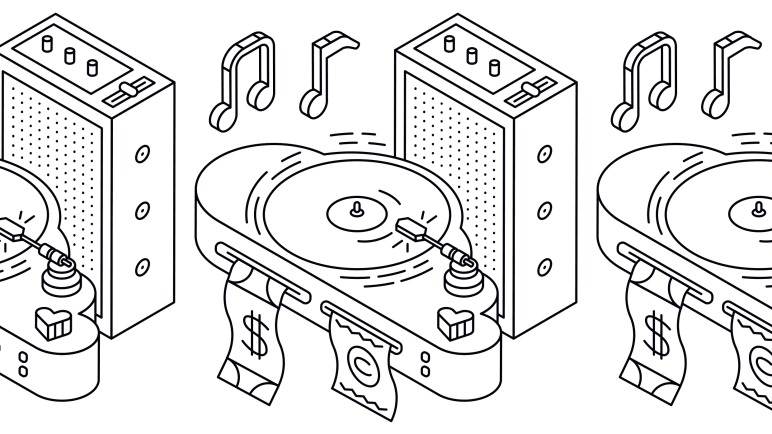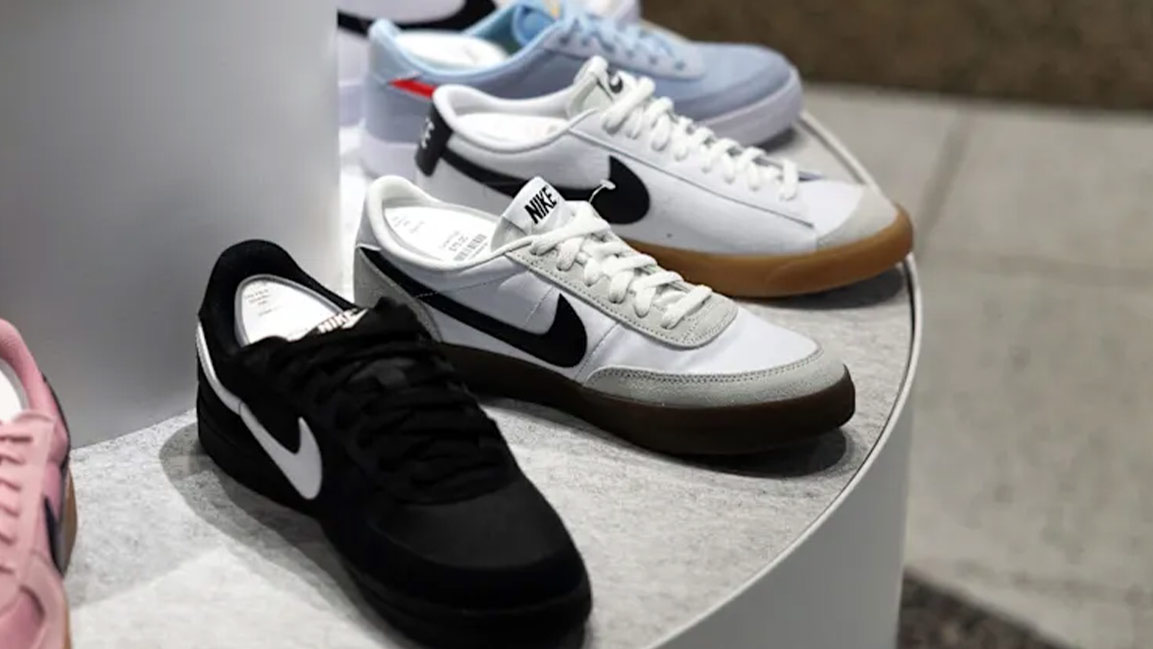- | 3:00 pm
Universal Music Group is rewriting how musicians are paid in the AI era
Under CEO Lucian Grainge, the parent company of Interscope, Geffen, and Def Jam is leading the industry’s response to AI—and reworking streaming royalties to boot.

Universal Music Group is No. 45 on the list of the World’s 50 Most Innovative Companies of 2024. Explore the full list of companies that are reshaping industries and culture.
While many music industry veterans greeted the arrival of generative AI last year with dread, Universal Music Group (UMG), the world’s largest music company, saw opportunity. The parent company of such labels as Interscope, Geffen, and Def Jam has been coordinating the industry’s response to the technology while working behind the scenes to rewrite the way streaming royalties work—and doing both under the banner of finding artist-centric solutions to the threat of AI.
Working alongside the Recording Industry Association of America, UMG played an instrumental role in bringing together a coalition of 150-plus organizations both in and outside the industry last year for the Human Artistry Campaign (HAC), which established a framework for the responsible use of AI for creative endeavors while respecting copyrights and artists’ likenesses. UMG has since used that policy structure to lobby Congress for stronger AI regulation; sue AI startup Anthropic for using copyrighted song lyrics to train its models, which also generate protected lyrics; and guide strategic partnerships that take advantage of the technology.
Last August, UMG and YouTube unveiled their AI Incubator, which will jointly develop tools with a range of UMG artists, from the Frank Sinatra estate and John Legend to Charli XCX and Troye Sivan. In October, AI-powered music creation platform BandLab signed on to the HAC principles, pledging to work with UMG to prioritize artists in its music-making tools.
“AI at the service of artists is a good thing, but AI that is used to harm or prevent artists from due compensation is a bad thing,” UMG CEO Lucian Grainge told Fast Company via email. “So, our approach is to embrace responsible AI technology in a way that enhances human creativity. How is this done? By letting artists lead the way. That approach is at the heart of our collaboration with YouTube as well as our partnerships with . . . BandLab and others.”
At the same time, UMG has cannily used the flood of what it deems AI-generated music onto steaming platforms to essentially break the royalty model that has become entrenched over the past decade. It worked with French music streamer Deezer last year to win a double royalty boost for artists who receive more than 1,000 streams per month from 500-plus listeners, while demonetizing white-noise content. After launching initially with only UMG artists, Deezer’s artist-centric model is now being used for more than half of its catalog, including songs from Warner Music Group. In January, Spotify adopted a similar payment scheme that sets a 1,000-streams-per-year threshold for paying royalties to artists.
UMG also pushed back—hard—against TikTok, pulling its music from the social video platform at the end of January after the companies failed to agree on a contract. UMG has said two of its biggest issues with the platform were insufficient artist compensation and use of generative AI tools that brought content to TikTok that would dilute the royalty pool. “Our Artist-Centric initiative is designed to update streaming’s remuneration model and better reward artists for the value they deliver to platforms,” Grainge wrote in an open letter when he announced the decision to abandon TikTok. Grainge leveled that TikTok was trying to do the one thing UMG won’t let fly: “build[ing] a music-based business, without paying fair value for the music.” TikTok’s response noted that it had reached artist-centric agreements with other labels, adding that “UMG’s self-serving actions are not in the best interests of artists, songwriters, and fans.”
With or without TikTok, Grainge says UMG’s next phase of its artist-centric efforts will be to increase the pool of money that artists can benefit from. “We’ll do this by creating stronger artist-fan relationships through superfan experiences and products.” A likely first step to that is UMG’s forging a strategic partnership with e-commerce platform Ntwrk as part of Ntwrk’s acquisition of media brand Complex. Interscope Geffen A&M will be the first UMG label to work with Ntwrk and Complex on collaborations—and might offer a model for how other labels can work with the platform in the future.
Explore the full 2024 list of Fast Company’s Most Innovative Companies, 606 organizations that are reshaping industries and culture. We’ve selected the firms making the biggest impact across 58 categories, including advertising, artificial intelligence, design, sustainability, and more.







































